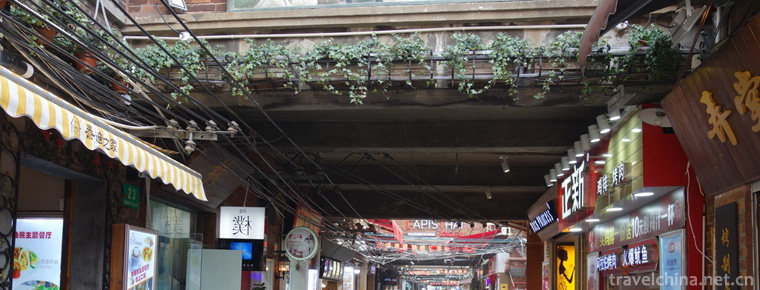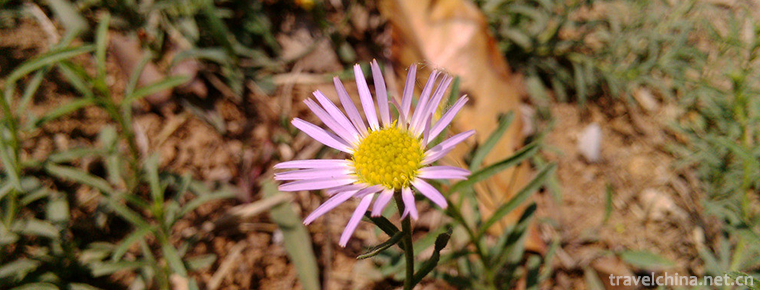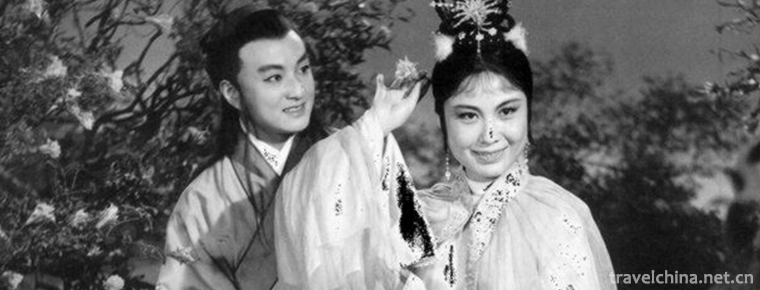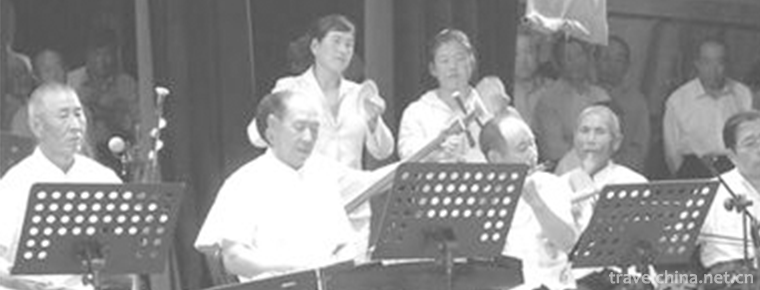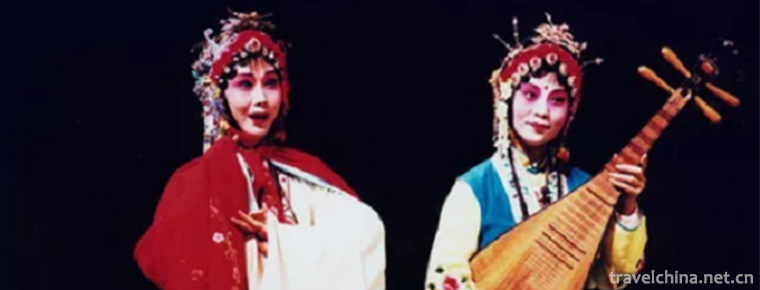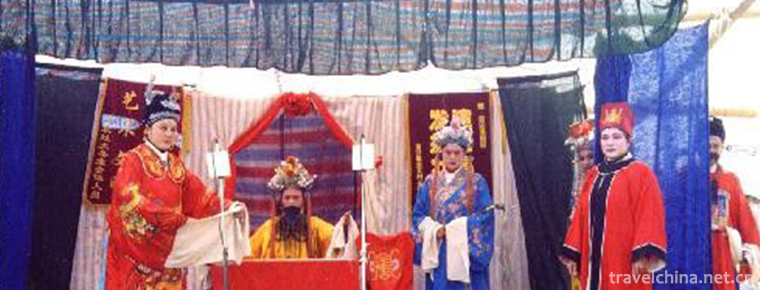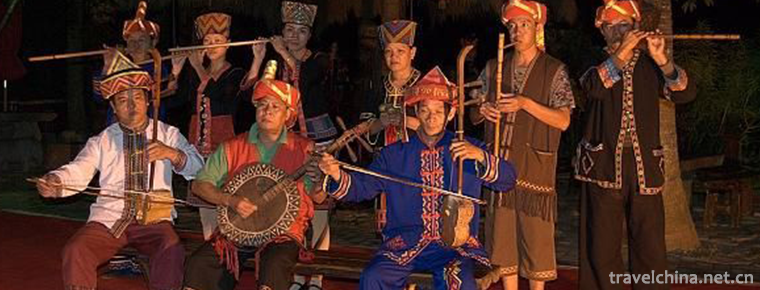Awakening Drama
Awakening Drama
Yongkang Xinggan Opera, also known as "Jianggan Opera", is a traditional opera that serves religion. Mainly to persuade people to reflect, guide people to rectify, mainly in sacrificial occasions, the form is similar to Mulian Opera. Originated in Yongkang, Zhejiang Province, it is spread in Dongyang, Yiwu and other places in Zhejiang Province. The representative plays include "Maotou Huajie" and so on.
Nearly lost, with the government's attention and support, performance and development gradually out of the predicament. In 2011, Yongkang Xinggan Opera was listed in the Third National List of Intangible Cultural Heritage published by the Ministry of Culture, numbered IV-140.
historical origin
Yongkang Xinggan Opera was originally known as "making martyrdom", "martyrdom" refers to those who died, doing martyrdom means doing a Taoist ceremony and performing. It can be seen that it was originally a kind of Taoist ritual drama, often mixed in the "Qingxinhong Lou Congress", "Pan of Paradise", "Icelandic Dao Field", "Ninth Floor" and other ceremonies, which was called "Asian Nuo" by academia. Opera". It came into being with the emergence of Taoism. Yongkang is located in the central part of Zhejiang Province. Taoism has a long history. With the expansion of Taoist ranks, the types and forms of performances of Duanzhai are also changing. In addition to the original inner altar law, there are also outdoor performances. The performances often take drama as the form and super ghost as the content, which leads to a Taoist ritual drama similar to Nuo opera and Mulian opera, Yongkang Xinggan opera.
Yongkang Xinggan Opera was born in the Ming Dynasty, but it was prevalent in the Ming Dynasty. There are five "customs" in Yongkang County Chronicle of Ming Zhengde, which include "for the excessive spirits, dispelling evil spirits, eliminating disasters, popular waterways and land courses, turning over the ninth floor, doing martyrdom and other customs". In the Qing Dynasty, the prosperity of the Qing Dynasty, even repeated prohibitions, Kangxi "Yongkang County Chronicle" Volume VI "Customs" contains: "Wizards and witches have the same drama, the so-called Hong Lou Sheng Hui, also known as the ninth floor, obscene and absurd, do not know what it comes out of. It is not surprising that fools believe in it and men and women gather together. Shen Gong (referring to Zhixian Shenbao) has also been strictly prohibited in recent years. However, the custom has lasted for a long time, and its foolish death can not be broken. It must be reformed in accordance with the Constitution, or it can be stopped. Until the Republic of China, according to the old artists in Zhiying Town of Yongkang, Yongkang Xinggan Opera was popular in Yongkang County at the end of Qing Dynasty and the beginning of the Republic of China, and spread to Jinhua counties and Shaoyun, Chenzhou. In the 1920s, when the Ninth Floor was turned over in Zhiying Town, 36 theatre troupes participated in the performance. Because there were too many and too few classes, except Yongkang Xinggan Opera, which continued day and night, the other three-in-one classes, such as Hui Ban and Wu Opera, could only perform one ticket or one play. It can be seen that Yongkang Xinggan Opera was the most popular one at that time. Yongkang Xinggan Opera also has the phenomenon of fighting with other theatrical troupes, and often Yongkang Xinggan Opera wins.
After the founding of New China, because Yongkang Xinggan Opera was performed by Taoist priests, with a certain religious ritual color, most of them were dissolved, only some villages and towns still occasionally performed, and gradually separated from Taoist rituals such as "Waterland Daochang", "Turning Ninth Floor" and "Eighteen Hangs", "Turning Three Boundaries" and "Tamping Five Grain". It has become a pure opera. Most of the plays were suspended and only a few occasionally performed. Among them, "Maotou Huajie" was performed at Shizhu Township Cinema in Yongkang County from the Cultural Revolution to 1985. Professor Teng Yongran of Shanghai Conservatory of Music went to shoot the video.
Artistic Characteristics
scenario
Every time Yongkang Xinggan Opera starts, it must first perform "Dance Eight Immortals" ("Eight Immortals Celebrate Their Birthday"), the characters in the play.
In addition to Tieguai Li, Lu Dongbin and other "Eight Immortals" and the Queen Mother, there are also Monkey King and Guan Yu. The two pioneers who first appeared were "Shen Jiang". One was deaf from heaven and the other was dumb. Its performances run through the whole process of "turning over the ninth floor". The so-called "turning over the ninth floor" is to tie nine "eight immortal tables" (big square tables) to trees and stack a "tall building" on two long trees in the square, which is called the "ninth floor altar". Each table is filled with sacrifices. The performer (mage) recites sutras and mantras while performing various complex acrobatics on the legs of the table, turning upside down one by one until he reaches the top of the ninth floor, which is the climax. Performers perform various thrilling acrobatics on the table, such as "dragonflies", "cranes spreading their wings", "dragons playing with water", and then throw steamed bread and other sacrifices to the four sides on the top of the "ninth floor" to feed wild ghosts. Then they turn down one layer after another, turn over one layer and withdraw one layer. Removing nine tables means breaking down eighteen layers of hell and exceeding all the ghosts who succumb to death. It takes three years for the whole process of "turning over the ninth floor" to be successful. Once a year, the first year is called "the Ninth Floor". That is to say, two long trees are erected on the square, called "the Ninth Floor Tree", and then a performance of "Maotou Flower Sister" ends. The second year is called "Wen Jiu Lou", which usually has five performances and ends in two days and three nights (later, in order to save money, it is often omitted). The third year is the topic. The performance lasts for five days, with nine performances. On the fourth night, Maotou Huajie will be performed again. On the fifth day, that is, the last day, the "Ninth Floor Turn" (the whole activity process, also known as "Ninth Floor Turn"). Days are shorter, and must last for more than four or five hours. Night shows must be "two heads red" (that is, from sunset to sunrise the next morning). Some big villages and rich villages do the law of "turning over the ninth floor", often employing several wake-up teams or other theatre troupes to perform at the same time in one place, which is called "jigsaw venue".
Singing characteristics
The singing style of Yongkang Xinggan Opera belongs to the category of Gaoqiang Opera. The voice of the voice helps the voice, and the voice of the voice only uses the words "Ah Luo Mili" to help the festival with drums and gongs. In the later period, the accompaniment of flute was added. Because Maotou Huajie is the main repertoire, Maotou Tune, which is mainly used in the play, has become its representative aria. "Maotou Tune" has a strong folk flavor, and it is a kind of song that is easy to sing.
Role Business
Affected by Wu Opera, Yongkang Xinggan Opera can be divided into Zhengsheng, Xiaosheng, foreigners, deputy end, Huadan, Zuidan, Zhengdan, Laodan, Dahua Face, Erhua Face, Xiaohua Face (Ugly), Four Flowers Face and Miscellaneous Foot Thirteen Lines. All played by actors. Taoist priests in Yongkang area exorcise ghosts with spells and tricks. Various gestures form Taoist dances and constitute the unique style of Yongkang Wake-up Drama Performance.
Musical instruments
The bands of Yongkang Xinggan Opera are divided into the following parts: drums: single leather drums, splints, and lobby drums; playing flutes and whistles; assistant blowing: playing huqin, whistle, and mountain torch, that is, indigenous wind instruments, pronouncing fiercely, often blowing them in the presence of ghosts, such as Shaoxing's eyehorn; gongs, gongs, gongs, gongs, and torches. Three strings; pull out: pull out big, and hold the vanguard and hang out; Sanshou: play gongs, drums, and small props.
Classic repertoire
The most solemn performance of "turning over the ninth floor" is only for five extinctions and nine performances, so the traditional repertoire of Yongkang Xinggan Opera is only nine (another one from the ninth floor and five from the ninth floor). Its representative repertoire is Maotou Huajie, which must be performed in one, five or nine plays. Therefore, Yongkang Xinggan Opera is also known as Maotou Huajie Opera. "Maotou Flower Sister" is also known as "Maotou Box". Originated from local folktales, the main plot is: there is a girl named Qian Huajie in Qianpo Tang Village, Yongkang, who is a child bride to Mao Huolong Mao's family because of her poor family. His husband, Mao Tou, was young, and he was a seven-year-old boy with twenty sisters. When she met Qian Sanpei, a salesman in Shujiacun village, she was in love with each other, but when she met Mao Tou and appealed to her parents, Mao expelled her. In order to extort money from Mao's family, Wang Qian's aunt, Huajie, abetted Huajie to suspend herself on vacation. Unexpectedly, Huajie hanged herself, and her wrongful soul went to the local government to cry for wrongs. The King of Yan caught the criminals concerned, tried out the reasons, punished Wang Qian, and let Huajie return Yang to marry Qian Sanpei.
The other eight performances are "Broken Margin Box" and "Save Mother Story". "Shaking the City Box" is a story about Meng Jiangnu's search for her husband. Jingzhong Box, the story of Yuefei. "Dead Girl Box", also known as "Zhao Guiqing", describes the death of Mao Kuang's wife (flower girl), whose soul fell in love with Zhao Guiqing, a scholar, and became a couple. Mao later found out that it was reported to Kaifeng Palace and Bao Zheng identified the ghost with Xuanyuan Mirror. In Fox Box, Gong Wenda, a scholar, did not believe in ghosts and gods and destroyed gods. The Jade Emperor sent foxes to confuse Gong Sheng and made him miss the exam. Zhang Tianshi removed demons and Gong Sheng started Chinese style after three years. "Drowning Tank" wrote that Fan Bang invaded the Central Plains, Zhang Tianshi defended the country and conquered Fan Fan. He used magic to drive the drowned Fan soldiers to win the battle, and then exceeded the limit for the drowned. "Filial Piety Box", also known as "Sang Meng Yi", the writer Sang Meng Yi became famous for his filial piety to his parents. Caoji Box is a collection of three small plays, White Tiger, Dragon Boat and Shenqiao.
Epidemic areas
Yongkang Xinggan Opera originated in Yongkang, Zhejiang Province, and spread in Dongyang, Yiwu, Pan'an, Wuyi, Jinhua, Jinyun and other places.
Inheritance and Protection
Current situation of circulation
Zhejiang Yongkang Xinggan Opera, which has a deep mass base, once fell into an endangered situation at the beginning of the 21st century. With the great attention and support of Jinhua Municipal Government, the performance and development of Yongkang Xinggan Opera gradually got out of the predicament. The number of class clubs increased, and they often performed in Yongkang's fairs, temple fairs and other folk activities.
protective measures
In 2011, Tangxianzhen Cultural Station was listed as the inheritance base of Yongkang Xinggan Opera.
In order to better protect and inherit the national intangible cultural heritage-Yongkang Xinggan Opera, on April 25, 2017, the Director-General of Zhejiang rare and endangered operas (part) representing the image inheritance of the repertoire, Sun Jianghai and Zhou Ziqing, the first-class national actor, came to Yongkang for shooting. Awakening Opera represents the play "Maotou Huajie".
Selected as a non-survivor
In 2011, Yongkang Xinggan Opera was listed in the Third National List of Intangible Cultural Heritage published by the Ministry of Culture, numbered IV-140.
representative figure
Lu Jianghong, male, was born in Yuxitou Village, Yongkang City in October 1932. At the age of 8, he entered Yu Xitou Primary School. At the age of 9, he began to learn Awakening Drama, Wu Opera, Jinhua Knock and Backstage Drum Boards. Since the age of 10, he has officially come on stage to knock on Jinhua. At the age of 14, he dropped out of school because of his father's death. The 15-year-old officially came on stage to sit in the background for the wake-up show. At the age of 17, he ushered in liberation and became director of the village committee. At the age of 18, after liberation, Awakening Drama basically stopped playing and continued to play drums behind the stage for Hugong Drama of Fangyan Temple Fair. At the age of 27, he became an agricultural social accountant and then a village accountant. At the age of 40, during the Cultural Revolution, he played drums behind the scenes for the revolutionary modern theatre. Now he is the representative inheritor of Yongkang Xinggan Opera at the provincial level.
Hu Shunu, female, was born in the family of Liyuan. Her grandfather Hu Xisong and father Hu Adi were Wu opera actors. Hu Shunu went around with her grandfather and father when she was 4 or 5 years old and was influenced by the art of drama. In 1942, 12-year-old Hu Shunu appeared on the stage (Zhendong Stage), and in 1955, went to Jiangshan Wu Opera Troupe, Gonghua Dan. The main performances are "Mu Guiying hangs in command", "Butterfly Cup", "Three Invitations for Pear Flowers" and so on. Since the early 1980s, Wu Opera Troupe in Yanhou and Fangyan Opera Troupe have been founded in more than 10 years. He was the director of 8 Rural theatre troupes in Yongkang and 6 theatre troupes in Jinhua and Jinyun. Now he is the representative inheritor of Yongkang Xinggan Opera at the provincial level.
Hu Suyang, female, born in 1965. Hu Suyang began to learn Wu opera at the age of 15. He was once the Huadan of Yongkang Wu Opera Troupe. In 2006, he began to perform the representative opera "Maotou Huajie". Having followed Hu Hailang, the inheritor of Yongkang Xinggan Opera, to learn the most traditional singing, body and movement, he was fortunate to have the guidance of Hu Shunu, the provincial representative inheritor of Yongkang Xinggan Opera. In 2017, she was awarded the title of "Excellent Amateur Cultural Worker" by the Municipal New Bureau of Culture and Guangzhou for her contribution to the inheritance of Yongkang Xinggan Opera. Now he is the representative inheritor of Yongkang Xinggan Opera at the municipal level.
The Value of Opera
Yongkang Xinggan Opera originated from Taoist rituals. It was originally a kind of religious rituals drama. It was performed in conjunction with the rituals of the Inner Temple. The performers were Taoist priests, who entertained both gods and people. Therefore, it was called "the rituals of the Inner Temple and the outdoor stage operas". Later, with the progress of society, the lack of religious consciousness and the reduction of Taoist rituals, they gradually separated themselves from the law and performed alone. Yongkang Xinggan Opera has long been completely separated from religious rituals and has become a pure opera, crowded into the eight major high-pitched operas in Zhejiang Province, and has become one of the national intangible cultural heritage. It has high academic research value and cultural and artistic value, and has been highly valued by the academic circles. It has been listed in "Chinese Opera" as an important item. Records, Encyclopedia of China and other official revision chronicles.

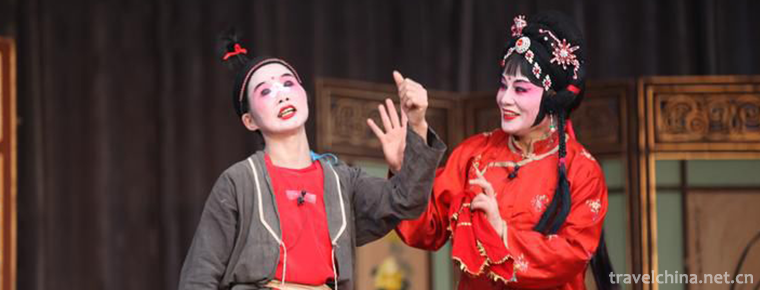
-
Tianzifang
Tianzifang is located in lane 210, Taikang Road, Shanghai, China.
Views: 174 Time 2018-10-12 -
Hepeishan National Forest Park
Hepeishan National Forest Park is located in Zouping County, Binzhou City, Shandong Province, at the junction of Zouping County and Zhangqiu County. The total area of the park is 480 hectares.
Views: 121 Time 2019-01-13 -
Scenic Spot of the Source of the Yellow River
Kariqu, one of the sources of the Yellow River, started with five springs, and Maqu, the other with only one springs. This is the source area of the Yellow River. Tourists here can't imagine that the .
Views: 174 Time 2019-01-18 -
Legend of Cowherd and Weaver Girl
Niulang and Zhinu are one of the four Chinese folk love legends (the other three are Legends of White Snake, Meng Jiangnu Crying Great Wall, Liang Shanbo and Zhu Yingtai). They derive from the star na.
Views: 309 Time 2019-06-08 -
Qinghai Yuexian
Qinghai Yuexian is also called Yuexian, Yueyue Diao, Back Diao, Yueyue Diao, Meihu, etc. Qinghai Vietnamese String is one of the traditional folk songs in Qinghai Province. It can be called the ".
Views: 315 Time 2019-06-11 -
Soviet Opera
Su Opera is a combination of Huagu Tanhuang, Nanci and Kunqu Opera. It is popular in the urban and rural areas of southern Jiangsu and Northern Zhejiang. Its predecessor, Sutan, was originally called .
Views: 72 Time 2019-06-16 -
Childrens play
Tongzi Opera is a form of performance in folk prayer activities in Jiangsu Province. It is popular in Nantong City of Jiangsu Province and in the central and western parts of Tongzhou City and its sur.
Views: 194 Time 2019-06-23 -
Yazhou Folk Songs
Yazhou folk song is one of the ancient folk songs in Hainan Province. It is popular in the areas of Yazhou and Dongfangkangcheng, west of Sanya Yacheng and east coast of Ledong. Yazhou Guest (Han) dia.
Views: 183 Time 2019-07-10 -
Xihua University
Xihua University, located in Chengdu City, Sichuan Province, is a provincial key comprehensive university with complete disciplines and multi-disciplinary development. It has been selected as "Ba.
Views: 227 Time 2019-08-31 -
Chizhou University
Chizhou college is Anhui Province Full time general Undergraduate Colleges It's the only one in China. Hui Style Architecture The style of colleges and universities is the only one in Anhui colleges a.
Views: 394 Time 2019-11-09 -
Animal resources in Guangan
There are 14 families, 30 species of mammals, 11 orders, 36 families, 115 species of birds, 19 species of reptiles and 10 species of frogs in Guang'an City. The national first-class protected birds include the Tragopan, which is mainly distributed in the forest area of H.
Views: 140 Time 2020-12-19 -
Dazhou social security
In 2019, the per capita disposable income of Dazhou residents is 22995 yuan, an increase of 10.1%. The per capita disposable income of urban residents was 33823 yuan, an increase of 9.5%. Among them, salary income was 18783 yuan, an increa.
Views: 105 Time 2020-12-20
